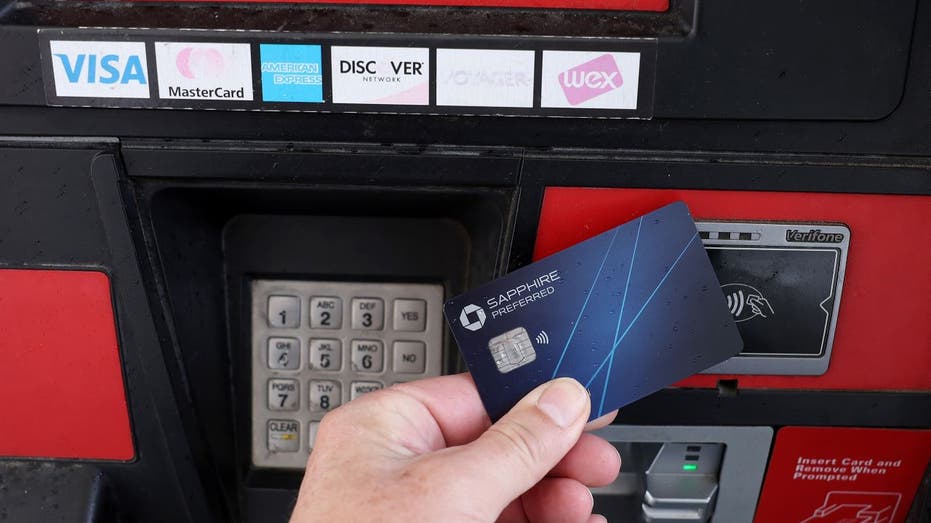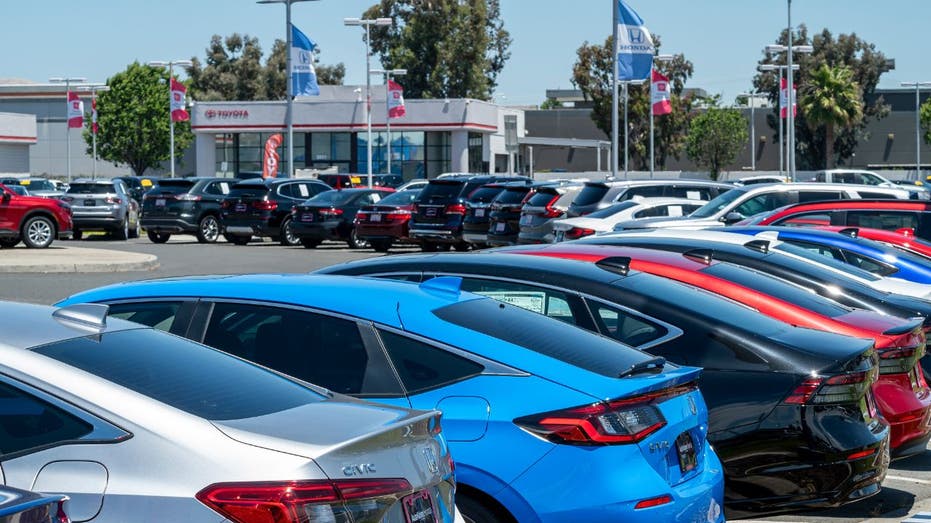Americans' household debt surged in recent years amid challenging consumer environment
Delinquency rates for credit card debt and auto loans reached their highest levels in more than a decade
Americans are really suffering due to this inflation: Kevin Hassett
Former Chair of the Council of Economic Advisers Kevin Hassett reacts to former President Trump outlining his economic agenda in North Carolina on 'Kudlow.'
The indebtedness of American households has surged in the last few years amid a challenging economic environment for consumers that has contributed to delinquency rates rising to their highest levels in more than a decade.
A quarterly report published this month by the Federal Reserve Bank of New York on household credit and debt found that between the first quarter of 2021 and the second quarter of 2024, credit card debt surged 48.1% while household debt — which includes mortgages and auto loans — rose by 21.6%.
In dollar terms, credit card debt rose from $770 billion in early 2021 to $1.14 trillion in the most recent quarter, while household debt increased from $14.64 trillion to $17.8 trillion in the same period.
Amid American households' rising debt burdens, delinquency rates have grown as well. In the last 12 months, about 9.1% of credit card debt balances and 8% of auto loan balances moved into delinquency — the highest levels since early 2011 and the end of 2010, respectively. The early delinquency rate for mortgages edged up by 0.1 percentage point, though the New York Fed noted that remains low by historical standards.
CREDIT CARD DELINQUENCY RATES HIT WORST LEVEL SINCE 2012 IN NEW FED STUDY

Credit card delinquencies reached 9.1%, the highest level since 2011, per the New York Fed. (Justin Sullivan/Getty Images / Getty Images)
American households' ballooning debt burden occurs against the backdrop of the inflation rate hitting a 40-year high of 9.1% in June 2022. That spurred the Federal Reserve to embark on a campaign of interest rate hikes that pushed the central bank's benchmark rate to a range of 5.25% to 5.50%, the highest level in 23 years, in an effort to tamp down inflation.
Matt Schulz, LendingTree's chief credit analyst, told FOX Business, "There's never just one reason for debt increases," and explained that while taking on debt can be either a sign of confidence or distress for households, the current economic climate tends to suggest the latter.
HARVARD ECONOMISTS SAYS FOOD PRICES ARE LEAVING HIM IN 'STATE OF SHOCK'

Auto loan delinquencies rose to 8%, the highest level since 2010, according to the New York Fed's report. (David Paul Morris/Bloomberg via Getty Images / Getty Images)
"Some folks take on debt because they have to do so to get by," he said. "Others take on debt because they feel confident in the financial situation and don't mind taking on a bit of debt in service of other goals, such as starting a small business or remodeling a house."
"Today, however, I don't think there's much doubt that a lot of debt is being driven by struggle rather than by confidence. Stubborn inflation and sky-high interest rates have really taken a toll," Schulz said.
"Inflation shrunk many American families' financial margin for error down to about zero. When the cost of gas, groceries and most everything else skyrocketed, that meant there was less money to put toward financial goals such as building an emergency fund and paying down debts," he explained. "For some, the problem went even deeper, forcing them to rely on credit cards even to help make ends meet."
MIDDLE- AND LOW-INCOME AMERICANS RUNNING OUT OF DISPOSABLE CASH: SF FED

American households have seen their indebtedness surge in the last few years. (Christopher Dilts/Bloomberg via Getty Images / Getty Images)
Schulz, a personal finance expert and author of the new book, "Ask Questions, Save Money, Make More: How to Take Control of Your Financial Life," said that challenging economic conditions have driven more borrowers into delinquency.
"Delinquencies and debt are rising because the combination of high debt, record interest rates and stubborn inflation created this perfect storm that hit many American families really, really hard. Honestly, the fact that delinquencies aren't higher feels like a sign of the resilience and strength of the American consumer," Schulz said.
GET FOX BUSINESS ON THE GO BY CLICKING HERE
He added that he believes "delinquencies are likely to keep climbing for a while" and added that "if unemployment ever spikes, things could get far worse fast."
FOX Business' Edward Lawrence contributed to this report.




















